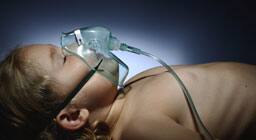Zee Media Bureau
Paris: A new study suggests that children who undergo general anesthesia before the age of one may experience problems with short-term memory later in life, possibly life-long.
This was based on the comparison of recollection skills of two groups of children -- some who had undergone anaesthesia in infancy and others who had not.
In the study, scientists investigated the recollection abilities of 28 kids, aged six to 11 over a period of 10 months.
They found that children who had been anaesthetised as babies had about 28 per cent less recollection on average than their peers, and scored 20 per cent lower in tests that assessed how much detail they could remember about the drawings.
“The children did not differ in tests measuring intelligence or behaviour, but those who had received anaesthesia had significantly lower recollection scores,” according to a media summary provided by the journal Neuropsychopharmacology, which published the results.
Recollection plays a role in autobiographical memory, classroom learning and reading comprehension.
“Thus, even subtle recollection deficits may have immediate consequences and reduce the child's potential to learn over time, which future studies should examine more closely,” wrote the University of California team.
However, the team found no difference between children who had been anaesthetised only once and those put under several times.
The team also observed no discernible effect of anaesthesia on familiarity -- a second function of memory which evokes a sense of an experience as opposed to recollection, which deals with the details.
Moreover, to analyse what effect anesthesia has on odour recollection in rats, the researchers also put 33 rats under general anaesthesia during their first week of life, where all of them suffered long-term deficits in recollecting odours, compared to never-anaesthetised rats.
None of the rats had suffered any injury, which the scientists took to prove it was the anaesthesia that affected memory and not any condition which had necessitated the anaesthesia for surgery, the scientists said.
As children cannot be anaesthetised for no reason, the team could not conclusively rule out the reason for the surgery as the cause of the memory impairment. But they said their observations in rats are likely to hold true in humans.
Other studies have shown that anaesthesia can kill brain cells and affect the working of synapses, but its impact on human memory has been unclear.
While further research is needed to determine how long the impairment will last, study co-author Greg Stratmann said rat studies “suggest that the deficit is life-long”.
(With Agency Inputs)
















